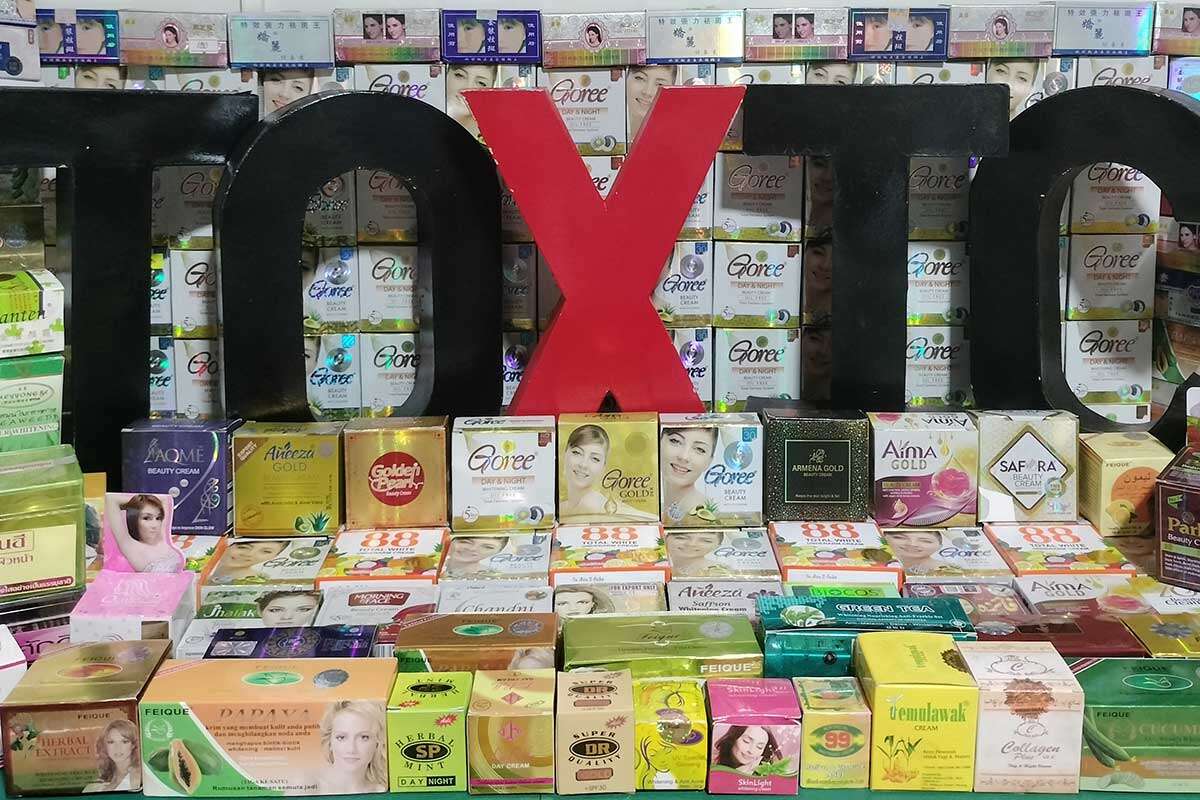Copyright journal

(Watchdog group pushes for further actions to enforce the ban and protect human health and the environment) Quezon City. The toxics watchdog group EcoWaste Coalition expressed utmost dismay over the brazen violation of the global ban on the use of mercury in cosmetics such as creams and soaps for lightening the skin tone. The group expressed its disappointment ahead of the Sixth Conference of the Parties (COP6) of the Minamata Convention on Mercury on November 3 to 7, and the eight anniversary of the Food and Drug Administration (FDA) Advisory No. 2017-289 issued on October 30, 2017 banning Pakistan-made Goree Beauty Cream, which may contain mercury as high as 46,900 ppm. The group urged duty-bearers, governments in particular, to unleash their regulatory powers to enforce the phase-out deadline this year on the manufacture, import or export of mercury-added cosmetics, and for them to carry out further measures to protect human health and the environment from mercury use in cosmetics. “While we eagerly welcomed the decision of COP5 to explicitly ban their manufacture, import and export , the production and trade of mercury-added products apparently have not ceased,” said Aileen Lucero, National Coordinator, EcoWaste Coalition. “Current efforts to enforce the global ban remain dismally inadequate. We therefore request parties at COP6 to take further actions that will put their decision into practice and make the market safe from mercury-added products.” To justify its insistence for further actions, the group cited the unimpeded marketing of FDA-flagged skin lightening cosmetics such as Goree Beauty Cream on Facebook, TikTok and on Lazada and Shopee despite the multiple public health warnings issued by the agency. “Product listings for FDA-flagged Goree products are all over the digital marketplace, making them very accessible to consumers aspiring for whiter skin but are unaware of the health exposure risks,” Lucero said. Goree and other mercury-laced products can also be obtained from physical stores selling cosmetics and food supplements. For example, the EcoWaste Coalition counted at least 15 stores offering FDA-flagged products in Pasay City during its monitoring on October 25: six in Baclaran Terminal Plaza I and II, four in Victory Plaza Mall, three in Wellcome Plaza, and one each in Baclaran Bagong Milenyo Plaza and MetroPoint Mall. To strengthen the global ban on mercury use in cosmetics, governments should also strictly prohibit the advertising, promotion, and sale of mercury-added skin lightening creams and soaps in online shopping and social media platforms and in physical stores and make the culprits accountable, the EcoWaste Coalition said. Aside from forging bilateral and multilateral collaboration to combat illegal trade, governments should embark on effective public information and education about the adverse effects of mercury and other hazardous substances in skin bleaching, lightening or whitening products, while imparting acceptance and respect for natural skin tones. “Colorism, or discrimination based on skin color, has to stop. There is beauty in every skin tone,” said Lucero. “The best protection is not to use such products and to recognize that ‘beauty’ comes in all colors.” The World Health Organization (WHO) has repeatedly warned that mercury-containing skin lightening products are hazardous to health. WHO lists mercury among the 10 chemicals or groups of chemicals of major public health concern. “Adverse health effects of the inorganic mercury contained in skin lightening creams and soaps include: kidney damage, skin rashes, skin discoloration and scarring, reduction in the skin’s resistance to bacterial and fungal infections, anxiety, depression, psychosis and peripheral neuropathy,” the WHO warned. When skin lightening creams and soaps are washed off, the mercury enters the marine environment where it becomes an even more toxic form that can contaminate the food chain. According to the WHO, “pregnant women who consume fish containing methylmercury can transfer the mercury to their fetuses, which can result in neurodevelopmental deficits in the children.”



